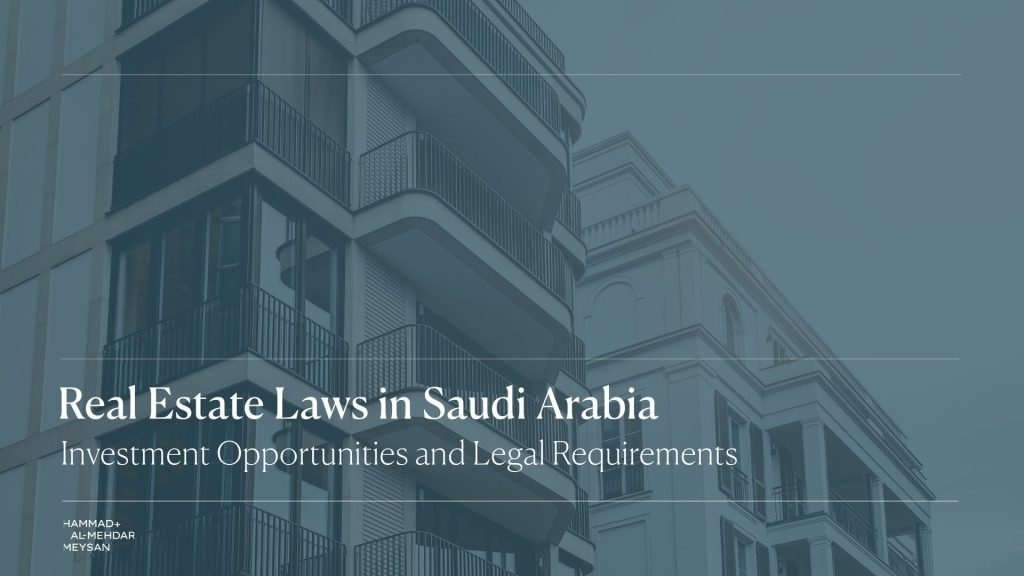
Saudi Arabia has emerged as one of the most dynamic real estate markets in the Middle East, driven by its Vision 2030 agenda, rapid urban transformation, and ambitious economic diversification goals. The sector’s ongoing liberalisation, especially the historic opening of the market to foreign ownership, is unlocking unprecedented investment opportunities across residential, commercial, and industrial real estate.
A Transformative Legal Landscape
Over the last several years, Saudi Arabia has significantly overhauled its legal framework to make the real estate sector more accessible, transparent, and investor-friendly. The cornerstone of these reforms was the 2023 Cabinet approval permitting full property ownership by foreign individuals and entities, including in key urban centres such as Riyadh, Jeddah, and Dammam. This change marks a major departure from previous restrictions and underscores the Kingdom’s commitment to attracting global capital.
However, restrictions still apply in Mecca and Medina, where non-Saudis are not permitted to own property. Outside these areas, foreign investors can acquire real estate subject to regulatory approval and licensing through the Ministry of Investment (MISA).
Investment Opportunities in a Fast-Growing Market
Several national megaprojects are powering Saudi Arabia’s real estate boom:
- NEOM, the futuristic smart city
- The Red Sea Project, focused on luxury eco-tourism
- Qiddiya, an entertainment and sports hub
- Diriyah Gate, a heritage urban development
These projects offer direct entry points for global developers, institutional investors, construction companies, and hospitality operators.
Meanwhile, Riyadh’s transformation into a global city is catalysing demand for commercial, mixed-use, and residential developments. The growing expatriate population, government relocation plans, and international business inflows are intensifying interest in the capital’s real estate sector.
The Premium Residency Program, updated in 2024, now offers expanded benefits, including multi-property ownership, investor visas, and family sponsorship, targeting high-net-worth individuals and skilled professionals.
Legal Requirements for Real Estate Investment
Foreign investors must meet specific legal conditions to operate in the Saudi property market:
1. Foreign Ownership and Licensing
- 100% ownership is now permitted in most areas, but registration through MISA is mandatory
- A valid commercial licence must be obtained for real estate development, leasing, brokerage, or facility management
- Investment in strategic or restricted zones may require additional government approvals
2. Due Diligence and Title Verification
- Investors should validate land titles via the “Sak” digital real estate registration system, which is now mandatory for all formal property transactions
- Zoning compliance, environmental clearance, and land-use approvals must be verified before acquisition
3. Contracting Standards
- Contracts must be written in Arabic and comply with Saudi contract law
- It is advisable to engage bilingual legal counsel with experience in Saudi property law, particularly for large or long-term commercial deals
4. Tax and Financial Obligations
- Real Estate Transaction Tax (RETT): 5% on the value of the property transfer
- Value Added Tax (VAT): 15% may apply on real estate services (e.g., brokerage, management)
- The recent 2024 guidelines issued by ZATCA clarify that mixed-use property transactions must allocate taxable vs exempt components appropriately
5. Dispute Resolution
- Disputes may be resolved through Specialised Real Estate Courts or commercial arbitration, including via the Saudi Center for Commercial Arbitration (SCCA)
- Saudi Arabia is a signatory to the New York Convention, supporting the enforceability of foreign arbitral awards
Strategic Considerations for Foreign Investors
Investors should adopt a long-term strategy aligned with Vision 2030, incorporating:
- Joint ventures with local developers or sovereign-backed real estate funds
- Smart-city and ESG-aligned project design, which is increasingly favoured by regulators and urban planners
- Engagement with government-backed infrastructure and public-private partnership (PPP) models to gain strategic access
Additionally, green building standards, climate-adaptive architecture, and energy-efficient developments are being promoted through sustainability regulations under the Ministry of Municipal, Rural Affairs and Housing.
Saudi Arabia’s real estate sector is entering a transformative era characterised by legal liberalisation, mega-infrastructure projects, and the integration of foreign investors. With supportive regulation, strong government backing, and rising demand in key cities, the Kingdom offers significant potential for real estate developers, institutional investors, and asset managers. To unlock these opportunities, investors must remain attuned to the evolving legal landscape, tax obligations, and strategic entry routes available within one of the fastest-growing property markets in the world.
